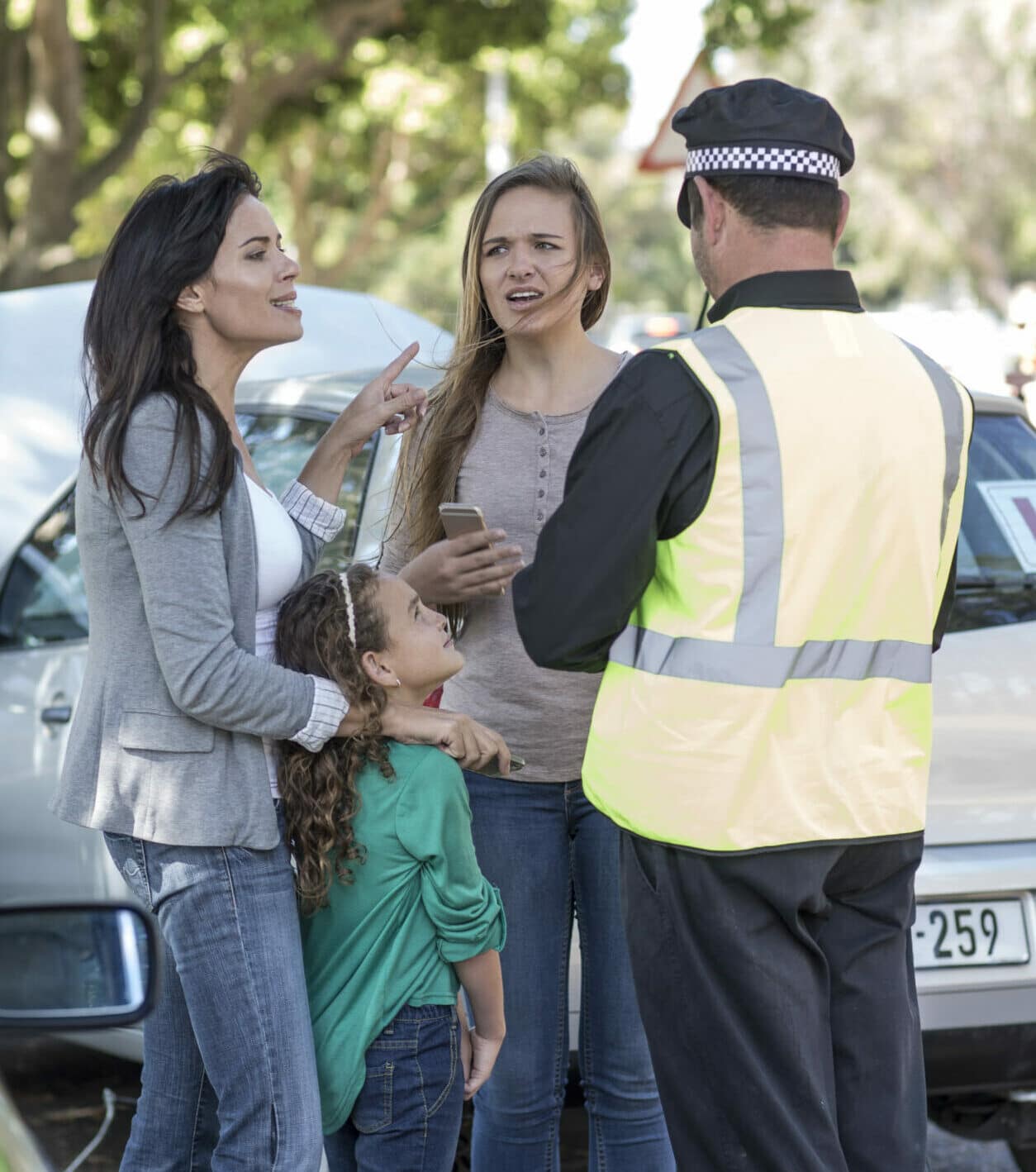Give police officers a full account of what happened after any California traffic accident. Tell the truth and alert the officer if you saw the other driver behaving recklessly or carelessly.
Officers will be creating a collision report based on what they can observe at the scene and what the driver and witnesses (including passengers) tell them. The more accurate the details they receive, the better the chance that they’ll assign blame to the right person. The assignment of fault becomes extremely important when it comes time to decide who should be paying for your car repairs and your injury recovery.
What Should I Tell the Officer on the Scene After an Accident?

When you help the police officers or the California Highway Patrol (CHP) officers who respond to your crash gather the facts of what happened, the effort will help your case and help the officers do their job.
The officer won’t have witnessed the collision and will be relying on the evidence available to make an educated guess about who caused the crash. Any help you can give the officer can go a long way to helping the truth emerge.
If you think of it, jot down some of the most important factors on your phone immediately after the accident. You could forget what you observed in the shock of what happened. Try to give exact details.
- The Basics: Make sure the officer is clear about what direction each vehicle was traveling in and what lanes they were using. The officer should know what any traffic lights involved were showing at the moment of impact. Give the officer the order that cars showed up at a stop sign intersection.
- Recklessness: The officer should know if the at-fault driver was speeding or driving aggressively. If the driver was switching multiple lanes or showing signs of road rage, that’s something an officer should be informed of.
- Carelessness: You might notice a driver swerving while staring at a cellphone screen or trying to eat a sandwich just before a crash. Let an officer know if you feel a distracted driver caused the accident.
- Rideshare or Delivery Driver: A driver behind the wheel on the clock may not want employers to know what happened. The at-fault driver might remove signage showing they are driving for Uber or delivering food for DoorDash. Make sure to alert the officer if you believe the other driver was working for a delivery service.
- Provide Witnesses: If there were any witnesses nearby or in other vehicles that have stopped, get their contact information. Tell the officer about any witnesses nearby and make sure the officer talks to them.
- Provide Your Information: Give the officer your address and phone number. The officer will be asking for your driver’s license and insurance information. The officer should be providing the other driver’s information to you. If not, make sure to ask the other driver for those details.
Is a Police Accident Report the Final Say on Who’s to Blame?
Police officers create collision reports after viewing the evidence and using their best judgment on what happened. That accident report could serve as powerful evidence in your favor, but it can also be questioned.
Insurance adjusters consider what’s in the collision report and use it to determine how much fault they should accept and how much support to provide victims. However, those adjusters are also paid to limit the support paid out. If they can cast doubt on a police accident report and even attempt to shift the blame to an innocent driver, they will.
An officer might also get it wrong. When you are falsely accused of causing an accident, you might need evidence that goes beyond a police report to avoid having to pay for the consequences of a crash.
A skilled California car accident lawyer can help you secure the proof necessary to make sure the truth wins out and you don’t end up footing the bill for a crash you didn’t cause. If you’ve suffered a serious injury, your attorney also fights to get you the most in compensation possible to help you pay for a full recovery.
Contact Maison Law to schedule a free case consultation. It’s a no-risk, no-obligation way to find out how to protect yourself after a frightening accident.
